- Home
- Lorenzo Carcaterra
Apaches Page 4
Apaches Read online
Page 4
To many people, those sights and sounds built up a well of hate. In Davis Winthrop, it fueled an eagerness to change. Unlike many in his neighborhood, Davis Winthrop wasn’t blinded by the abuse of power. He saw the other side as well—the street dealers turning the promise of childhood into the emptiness of a junkie’s life; the young men slain by stray bullets in the dark. He saw the abandoned mothers, many wasted by the ravages of white powder, their men nowhere to be found, dragging their children down the streets, too burnt to know that it was more than their own lives they were tossing into the garbage heap.
It wasn’t lost on Davis Winthrop that the source of such sadness shared his skin color. That while white might be the enemy, it would often be black that betrayed the trust.
He vowed to do all he could to change that.
And he would do it in the place he knew best—the hard-edged streets of Brownsville.
Davis Winthrop went from uniform to undercover in less than a year. He was put on the street, posing as a gun runner for a South American outfit. He didn’t go into the job blind. He made sure no one knew more about guns, from make and caliber to crate price and street value. He studied the weapons most in demand and learned the habits of the big-time buyers. He also realized that if he was going to be selling guns to people in the killing game, he needed to be an expert in handling them. He took classes to improve his marksmanship, working not only on accuracy but on speed, control, and range. He read all he could about the guns he sold, and was soon able to tear apart and put together any make or model in a matter of minutes.
Soon enough, to both cops and criminals, Davis Winthrop became the man to see. He was a walking edition of Guns and Ammo, his knowledge so detailed, even the feds called him in for advice. His shooting was so proficient, it earned him the well-deserved nickname “Dead-Eye.” Put a scope on a rifle and he could split a cantaloupe from 150 yards out. In the dark. Give him a .44 caliber and he could put six through a man’s chest as he slid across a bare floor. With a .22 in hand, Dead-Eye could land a clean head shot in the quiet of a darkened room.
Dead-Eye Winthrop was himself a weapon, coiled and let loose. And he loved working the danger zones most other cops avoided. It was where he felt most in control.
• • •
DEAD-EYE STOOD IN the center of the bar, lit a cigarette, and looked over at the man with the thick mustache and yellow teeth. Dead-Eye was tall, standing close to six feet three inches, and he towered over the man whose Porkpie was tilted up.
“You know what it is I want,” the man said, his accent cartoon thick. “Correct?”
“I look like fuckin’ Carnac to you?” Dead-Eye said, his eyes making mental notes. “No, I don’t know what you want. I don’t even know who you are.”
“Magoo tell you I’m good for the money?”
“Only reason why I’m here,” Dead-Eye said.
Two men were behind him at a table, playing cards, semis tucked tight against their rib cages. A guy too young to be as fat as he was polished glasses over by the cash register, his hands no doubt within easy reach of a weapon. Dead-Eye heard Spanish voices coming from the kitchen, all male, all loaded.
The man poured vodka into an open can of Coke, then took a long sip. He smiled over at Dead-Eye.
“You drink?” he asked.
“With friends,” Dead-Eye said. “Now, why don’t you take this where it’s going.”
“I need magnums,” the man said. “At least fifty.”
“Three-fifty-sevens do you right?” Dead-Eye asked.
“If those are the best,” the man said.
“Best I can get.”
“How soon?” the man asked.
“You skipped a spot,” Dead-Eye said. “You’re supposed to say how much.”
“The guns are important,” the man said. “Not the price.”
“Just so you know, it’s five hundred a gun, more if you want ammo,” Dead-Eye said. “You give half now. I take the other half when you open the crate.”
“What guarantees do my people get?”
Dead-Eye put his cigarette out on the floor, twisting it with the tip of his work boot.
“Delivery of the guns,” Dead-Eye said. “They’ll be here on the date and time I say.”
“That’s it?”
“You want more, shop at Sears. I just hand you guns. Straight up for cash. They don’t work, don’t mean shit to me. Trigger falls off in a shoot-out, bullet goes backward ’stead of forward, barrel melts before your eyes, any of that happens, don’t call me. Complain to the Better Business Bureau. Write your congressman. I don’t give a fuck what you do. Just don’t call me.”
“I hope these guns work as well as your mouth,” the man said, eyes moving off Dead-Eye to the two behind him.
“And I hope it’s true you got the kind of money Magoo says you do,” Dead-Eye said. “You don’t, I’m a walker.”
“Magoo told me something about you,” the man said, his voice armed with an edge. “Something I hope is not true.”
Dead-Eye felt the tension in the room notch up a few degrees. The fat guy behind the bar had his hands flat across the wood surface. The two behind him let their cards drop to the table. The voices in the kitchen were stifled.
“I’m gonna hate it if you make me guess,” Dead-Eye said.
“Magoo thinks you’re a cop,” the man said with a smile. “He thinks that’s a problem. And he wants that problem to go away. That’s why he gave me this.”
The man reached into his jacket pocket and pulled out a thick wad of cash, $25,000 easy, cut green and fresh, white wrapper still around it. The man dropped it on the table and looked up at Dead-Eye.
“He must be pretty serious about this problem,” the man said. “Put up money like this for one man. What do you think?”
“I’m touched,” Dead-Eye said.
“I get more later,” the man said. “When I bring him your heart.”
“Magoo always was a romantic son of a bitch,” Dead-Eye said. “Too soft for this kind of work.”
“Tell me, before you die, my friend,” the man said. “Are you what Magoo says? Are you a cop?”
Dead-Eye looked around the room, kept the faces in their places, and turned back to the man.
“Yes,” Dead-Eye said.
• • •
THE FIRST GUN was in Dead-Eye’s right hand, aimed at the man’s chest. The second gun, his favorite .38 Special, took out the fat guy behind the bar. The two at the table hadn’t even had a chance to move.
“They can live if you let them,” Dead-Eye said to the man, nodding his head toward the two behind him. He saw three men stop at the kitchen entrance, guns drawn.
“I’m not armed,” the man said.
“That could be a problem,” Dead-Eye said. “For you.”
Dead-Eye was impressed. The man kept his cool, unfazed by the gun aimed several inches from his heart.
“I know your country,” the man said. “Your ways. The police don’t kill unarmed people. You are too civilized. It’s a shame, but it’s true.”
“I bet your fat friend behind the bar believed that too,” Dead-Eye said.
“He was stupid,” the man said. “You won’t be.”
“That’s right, compadre,” Dead-Eye said. “I won’t be. I just drop you and then take my chances with the rest of your buddies. If I make it out—and, believe me, the odds are in my favor—then I put a drop gun in your hand and walk away clean. Nobody’s gonna give a shit.”
The man nodded, his eyes finally glancing down to the gun.
“May I light a cigarette?” he asked.
“It won’t kill you,” Dead-Eye said.
The man took a cigarette from a pack on the table, put one in his mouth, and Ht it. He took a deep drag, let out the smoke through his nose, and smiled.
“It would be an insult to offer you money,” the man said. “Cop like you don’t care about such things.”
“I like money,” Dead-Eye said. “Just not yo
ur money.”
“But you want something,” the man said. “And I don’t think killing a room full of runners is what you want.”
“I wouldn’t throw myself over your coffins either,” Dead-Eye said.
“We can settle this,” the man said. “Just tell me what it is you want.”
“Magoo,” Dead-Eye said. “I want you to set him up. Deliver him to me.”
“That could get me killed faster than the gun in your hand.”
“Your kind of work doesn’t come with a pension plan,” Dead-Eye said. “Die now, die later, it all works out the same to me.”
“And if I give you that?” the man asked. “If I give you Magoo?”
“Then it won’t be my bullet that kills you,” Dead-Eye told him. “Least not today.”
The man stared into Dead-Eye’s face, looking for signs of weakness.
He came away empty.
“I will give you Magoo,” the man said after a few minutes, sending his men back to their places with a quick brush of his hand. “On one condition.”
“Let’s hear it.”
“Have a drink with me,” the man said. “Now that we’re friends.”
• • •
EDDIE WINTHROP WAS a bigger man than his son, the onslaught of age having shaved only half an inch from his powerful six-foot-five frame. He walked with a slight limp, the arthritis having settled in his left knee, the payback for twenty-five years spent working for Con Ed, days and nights in darkness and dampness under the city streets.
An El Producto cigar was jammed into the corner of his mouth as he sat on the third step of the stoop leading to the four-story Brownsville brownstone he had bought with a G.I. loan and a $2,000 inheritance from his grandmother. He put thirty years into the house, paying off one mortgage and picking up another as soon as a son or daughter was old enough to head for college. He spent his happiest days there, tending his backyard garden, enjoying quiet Sunday afternoons with his wife, Elma.
His saddest days were spent there too.
It was on the second floor, in the back bedroom, where Elma died on a warm June day in 1977, three years ago this month, the heart attack stripping her of the smile he loved, taking away the best friend he would ever have.
A year later, Eddie was in his finished basement, shooting a quiet game of pool. Count Basie was on the turntable, and a cool drink was in his hand, when he got the call about his youngest son, Albert, shot dead on a tree-lined street in a Westchester town whose name he had never heard before.
Now he sat there, his days winding down, the cancer in his stomach spreading, content that he had done the best he could to raise his family. He looked across at his son Davis and wondered if Davis would someday feel the same. Eddie Winthrop had made his peace with the fact that his son had become a cop. He had never warmed to the idea, but he did like the way the neighborhood kids looked up to his boy.
“You want to go sit inside?” Dead-Eye asked his father, buttoning his baseball jacket.
“No,” Eddie said. “I always liked the cold. You know that. It was your mother couldn’t take it. Thirty years, every winter, had to hear her scream about how we would all be better off in North Carolina. Like it don’t get cold there.”
Dead-Eye reached into a paper bag by his left leg and pulled out two containers of hot chocolate. He handed one to his father.
“There any sugar in this?” Eddie asked.
“Ain’t supposed to be.”
“Says who?”
“Your doctor,” Dead-Eye said.
“What’s he know?” Eddie said.
“Your blood count, your sugar and cholesterol levels,” Dead-Eye said. “Want me to go on?”
“Only if you want to bore me to sleep,” Eddie said, sipping his hot chocolate. “Only doctor I know puts a dyin’ man on a diet.”
The two sat silently together, eyes on the passing traffic, ears numbed by heavy blasts of music coming off car radios.
“Still like your job?” Eddie asked his son, eyes focused straight ahead.
“It fits me, Pop,” Dead-Eye said. “Don’t really know why. But it always has.”
“I know,” Eddie said. “I was the one wastin’ breath tryin’ to talk you out of doing it.”
“Sorry you didn’t?”
“Sometimes,” Eddie said. “Whenever I hear about a white cop shooting another black kid. Everybody rushin’ in, from mayor to priest, lookin’ to clear the shooter’s name. Then they all go on the TV and talk about how killing a black teenager who might have had a gun was justified.”
“It’s not always murder,” Dead-Eye said.
“Most times it is,” Eddie said, turning to face his son. “You think about it at all?”
“About what?” Dead-Eye asked. “Getting shot?”
“They put you in these places alone,” Eddie said. “Then, if there’s any trouble, they supposed to be there for you. Back you up. Make sure you don’t die. Am I right so far?”
“Pretty much,” Dead-Eye said.
“You ever wonder what if they don’t show?” Eddie said. “What if they don’t want to risk their own white ass for some young black cop.”
Dead-Eye sipped his hot chocolate and stayed quiet.
“It’s a white man’s badge,” Eddie said. “Just because they let you have one don’t change that.”
“Times change, Pop,” Dead-Eye said. “Old men like you forget that.”
“But people never change, Davis,” Eddie said, standing up and putting the spent cigar back in his mouth. “And that’s something a young man like you should never forget. Not if you want to stay alive.”
• • •
THE OFFER FROM the Spanish man in the funny hat made Magoo smile.
Magoo was only twenty-six years old, but he already had control of all the illegal gun shipments moving in and out of New York City. In six years, starting as a street runner in a Queens housing project, Magoo had worked his way up the criminal ladder with bullet speed, killing anyone in his way, often with the very guns he sold them. He had a street force of more than four hundred men and women, each reporting to district subs who, in turn, handed over orders and proceeds to borough commanders.
They then handed everything over to Magoo.
Magoo had been raised in a series of foster homes, where he learned to trust no one. He especially hated cops and openly bragged about the three he himself had brought down, one of them a young undercover he made crawl on his knees and sing the theme from Shaft before putting three bullets in the back of his head.
He knew very little about guns other than that they were in great demand and the right people on the wrong side of the law would pay any amount to get them. He hired only blacks and put a permanent price on loyalty. He stayed clear of drugs and drink, figuring his line of income was risky enough without supervising it through hazy eyes. He banked his cash past a laundering system that was run out of Toronto, flowed into Europe, and eased back into his private Manhattan account. Money meant everything to Magoo, and he made it his business to remove any threat to the cash flow.
Davis “Dead-Eye” Winthrop was such a threat.
• • •
DEAD-EYE WAS A different man at home, caring for his wife, doting on his son.
On many evenings before he hit the streets, Dead-Eye would make it a point to rock and cradle the four-month-old baby to sleep, then lay him in his crib, belly side down.
He watched him sleep, the baby’s eyes twitching to a dream, his lips pursed, hands balled into fists. The boy, Eddie, had his mother’s pleasant smile and his grandmother’s sweet nature. Dead-Eye looked around the room, the stuffed toys bunched up on a corner window seat, soft dolls strewn around the floor. A warm room in a warm house. The house his father bought and paid for with hard work and now shared with his son and his family, keeping his own apartment two stories below.
It was well into the middle of the night.
Dead-Eye’s wife, Grace, was sound asleep in the bedroom n
ext door. Dead-Eye moved away from his son’s crib and sat on the floor, legs folded, taking in the creaks and moans of the quiet house. All that he loved took breath between its walls. Memories, pleasant and sad, lived within the curves, nooks, and cracks of a house built five years before the start of the First World War. There was no violence in this house, only love.
In there, the price of a gun had no history and a life had meaning and respect. If death did arrive, it came by way of disease or destiny, not in the form of late-night bullets. If only Dead-Eye could seal the contents of this house and keep everyone inside it safe and warm.
But he knew that was a dream.
Reality was waiting for Dead-Eye on the streets of Brooklyn. He had a meeting with Magoo in less than two hours, and one of them would die.
Dead-Eye looked over at his son, asleep in this safe house of peace, and prayed that his guns would not betray him on this night.
• • •
DEAD-EYE KNEW IT was a setup the minute he stepped out of his car.
Four men stood around Magoo, each wearing a long leather coat, standard designer wear for the heavily armed.
The Spanish man was behind Magoo, nodding his head as Dead-Eye approached.
“Hello, my friend,” he said. “You are here.”
“I’m here,” Dead-Eye answered, looking over at Magoo.
“Now we can do business,” the man told Dead-Eye. “Enough of this silly talk between us. We have to trust each other. You can’t do business without trust. And I trust you. It’s what I told Magoo. If you are a cop, then I am a cop. Then we are all cops.”
“Chatty motherfucker, ain’t he?” Magoo said, smiling over at Dead-Eye.
“Too chatty to be a cop,” Dead-Eye said.
“It’s cold out here,” Magoo said. “Let’s take it upstairs. I think better when my teeth ain’t chatterin’.”
They walked around the corner in a group, past graffitistrewn walls, Magoo holding the middle, the Spanish man next to him, four leather coats filling out the huddle. Dead-Eye stayed in step behind Magoo.

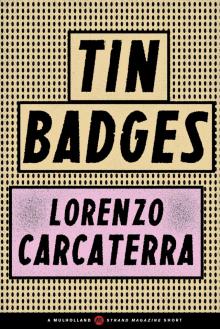 Tin Badges
Tin Badges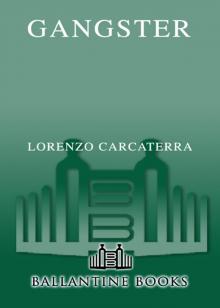 Gangster
Gangster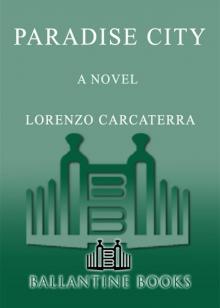 Paradise City
Paradise City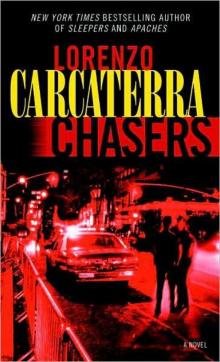 Chasers
Chasers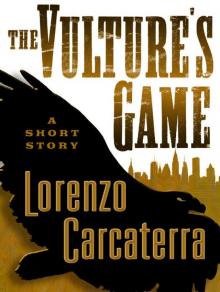 The Vulture's Game
The Vulture's Game Payback
Payback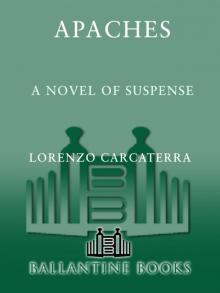 Apaches
Apaches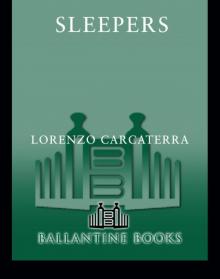 Sleepers
Sleepers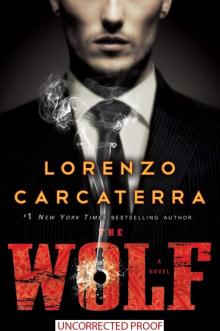 The Wolf
The Wolf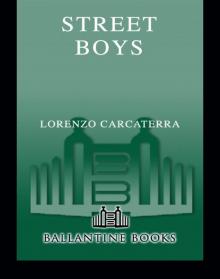 Street Boys
Street Boys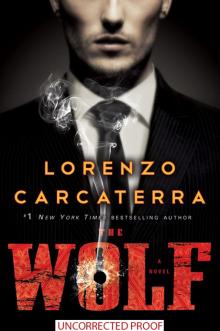 The Wolf: A Novel
The Wolf: A Novel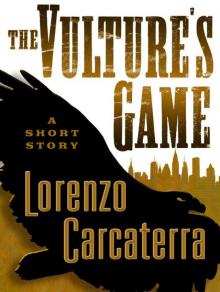 The Vulture's Game (Short Story)
The Vulture's Game (Short Story)